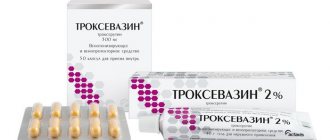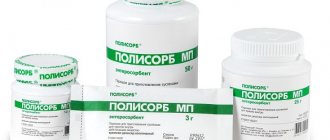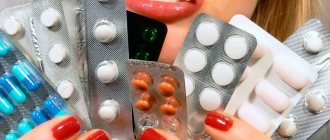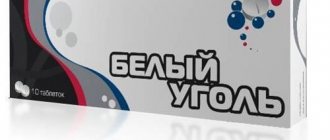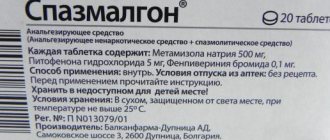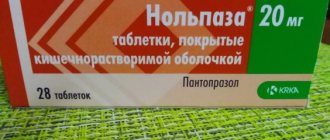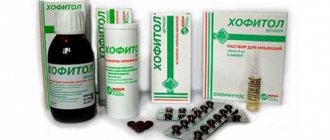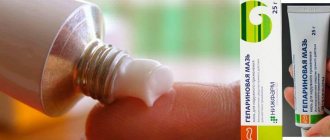Diseases of the gastrointestinal tract (GIT) require a careful approach to complex treatment. Diet is considered the basis. It is the violation of nutritional rules that plays a major role in the exacerbation of chronic pathology and leads to the progression of the lesion. In case of gastrointestinal diseases, Allochol's action depends on the type of functional disruption; it is necessary to compensate for insufficient bile production in liver cells, help secretory organs, and restore fat metabolism.
The drug contains a healing herbal combination of garlic and nettle extracts, dry bile, and activated carbon. Able to influence the movement of bile through the outflow canals. The main properties allow you to eliminate stagnation in the biliary system and improve digestion. Taking the drug helps get rid of unpleasant symptoms. The rules for using Allochol are set out in the instructions; the effectiveness depends on their compliance.
The benefits of allochol, its composition
This is a natural medicine that contains extracts of dry bile, garlic, nettle leaf, and charcoal. Available in tablet form.
The action of Allochol is explained by the presence of biologically active substances in its composition:
- Garlic contains a large number of components. They effectively lower cholesterol, kill microbes and prevent the formation of blood clots. Garlic promotes the transition of lipids to an emulsified state, subsequently removing them from the body. The extract of this plant prevents the development of fermentation in the intestinal cavity and fights bloating.
- Nettle contains vitamins, organic acids, phytoncides, carbohydrates, chlorophyll, tannins, microelements, incl. iron. The plant stops bleeding, increases bile production, reduces flatulence, and enhances the activity of digestive enzymes.
- Activated carbon effectively removes toxins.
- Dry bile includes organic acids - deoxycholic and taurocholic. They stimulate the production of bile by the liver and accelerate the emulsification of fats.
The substances that make up Allochol determine the following effect of the tablets:
- increasing the amount of bile produced and accelerating its movement along the biliary tract;
- improvement of digestion processes;
- elimination of atonic constipation;
- reducing the severity of the inflammatory process in the liver and biliary tract;
- improving the penetration of liquid into capillary vessels;
- reducing the amount of cholesterol and preventing its precipitation (thereby preventing the formation of gallstones).
General characteristics of the drug "Allohol"
This medicine comes in the form of enteric-coated round tablets. Therefore, all its active substances are released in the duodenum, where they affect the digestion process.
The main component of the drug is dry bile. It activates the work of pancreatic enzymes, the process of bile formation and accelerates the breakdown of fats. In addition, the drug contains activated carbon, which binds and removes toxins. The remaining active ingredients of Allochol are extracts of garlic and nettle. Dry garlic helps eliminate bloating and eliminates increased gas formation. And nettle promotes a freer flow of bile and has an anti-inflammatory effect.
The drug "Allohol" has been known for a long time, and is very popular among patients. After all, it is quite effective, and its price is low. You can buy a package of 50 tablets for 30-50 rubles.
https://youtu.be/jGflzNtbDro
Main indications for use
Allochol is indicated for inflammation of the pancreas, which is accompanied by:
- stagnant processes in the biliary tract and impaired bile outflow;
- disruption of normal liver function;
- disorders of the enzymatic function of the pancreas;
- formation of gallstones;
- development of dyspeptic symptoms - pain in the abdominal cavity, constipation, diarrhea, etc.;
- pain syndrome.
Allochol can also be used as a prophylactic agent to prevent the development of exacerbations of pancreatitis. Improvement in the patient's well-being is observed approximately on the 5th day from the start of taking the drug. As a rule, constipation, bloating, and diarrhea disappear. Subsequently, the patient notes a decrease in the intensity of the pain syndrome.
Allochol is recommended for use during seasonal exacerbations of diseases of the digestive tract. It reduces the treatment of the underlying disease and improves health.
Special conditions for taking the drug
In the entire history of treatment of pancreatitis with Allochol, no side effects or complications from its use have been recorded.
Very rarely, patients experienced such deviations from the norm:
- diarrhea;
- abdominal discomfort;
- heartburn;
- nausea.
To eliminate discomfort, you need to stop taking the drug, drink the sorbent and wash it down with plenty of distilled water.
Important information: Can I take Omeprazole for pancreatitis?
When undergoing a course of treatment with Allochol, it is strictly contraindicated to drink alcoholic beverages in any form or volume. Alcohol itself is a strong irritant to the pancreas, provoking increased production of food enzymes. In addition, alcohol destroys the soft tissue of the organ, causing necrosis. Both of these factors cause problems such as abdominal pain, vomiting and diarrhea.
Features of the use of allochol
The method of taking the medicine depends on the form of the disease, its duration, and the presence of concomitant diseases. The usual dose for an adult is 2 tablets 3 or 4 times a day. If necessary, it can be reduced or increased.
In acute pancreatitis, enzyme substances under the influence of bile are activated and begin to destroy the organ. Therefore, in the acute stage of inflammation, Allochol is contraindicated. Its use not only does not improve the patient’s condition, but also causes serious harm to him.
In the chronic form of the pathology, the use of Allochol is beneficial for the patient. It is better if he is treated under the supervision of a therapist. It is necessary to strictly follow the treatment regimen and dosage in order to achieve maximum benefit.
During remission, the duration of use of the medicine is 3-4 weeks. The dosage is selected depending on the patient's condition. In case of exacerbation, the time of taking the medication increases to 2 months.
After taking the medicine, the stomach begins to produce large quantities of hydrochloric acid. It eats away at its walls, causing ulcers to form. To prevent this from happening, you need to take the medicine after meals.
Release form of the drug
Allochol is available in the form of tablets coated with a hard shell, which prevents the drug from dissolving in the mouth or esophagus. The tablets are packaged in blisters with a capacity of 10 units each. Blisters are placed in cardboard boxes that contain 1, 3 or 5 plates. Another form of packaging is a jar made of dark thick glass. The jar contains 50 tablets.
For the treatment of children, tablets with a reduced concentration of active components are produced.
The drug should be stored in a cool place, the best of which is the refrigerator. The shelf life is 1 year. After the expiration date, the medicine must be disposed of.
Side effects
Allochol is usually well tolerated by patients. Undesirable reactions such as allergies, dyspepsia, diarrhea, burning behind the sternum, and itching rarely appear. Extremely rarely, Allochol can cause exacerbation of pancreatitis, gastric and duodenal ulcers.
Allergic reactions are different:
- itching;
- tissue swelling;
- hives;
- rash on the body;
- Quincke's edema, accompanied by rapid swelling of the face, lips, larynx;
- anaphylactic shock;
- disturbance of consciousness.
An overdose is usually accompanied by nausea, heartburn, diarrhea and itchy skin. The activity of liver transaminases may increase in the blood. These phenomena resolve on their own after discontinuation of the drug or dose adjustment and do not require specific treatment. In severe cases, symptomatic treatment is indicated.
The drug does not affect the ability to react quickly when driving vehicles or operating complex machinery.
Treatment of children
Allohol is also often prescribed for pancreatitis in children. This drug is indicated for chronic inflammatory processes in the pancreas and in case of insufficiency of its functions. "Allohol" will help improve digestion processes. But it is very important that the pill is taken only after meals. You need to eat at least fruit or a bun if the child has no appetite. Children under 7 years old are given half a tablet 2-3 times a day. Children over 7 years old - a whole tablet. The course of treatment is also 1 - 2 months, but the duration of treatment depends on the severity of the patient's condition.
Contraindications
Since Allochol has choleretic properties, it is prohibited to use it for the following pathologies:
- acute pancreatitis;
- allergic response to the ingredients of the medicine;
- acute inflammation of the liver;
- acute dystrophy of liver tissue;
- peptic ulcers;
- the presence of large stones (more than 1 cm in diameter);
- jaundice due to blockage of the bile ducts;
- acute form of enterocolitis;
- inflammation of the gallbladder.
The medicine is not prescribed for children.
During pregnancy, the use of the drug is possible only after the approval of the attending physician.
In what cases is Allochol contraindicated?
Taking Allochol is strictly contraindicated for the following diseases:
- allergy to the components of the drug;
- acute stage of hepatic dystrophy, hepatitis, pancreatitis, enterocolitis;
- calculous cholecystitis;
- jaundice caused by obstruction of the bile ducts due to the formation of stones or tumors;
- large stones (10 mm or more, according to ultrasound) in the biliary system;
- peptic ulcer of the duodenum or stomach.
It is impossible to independently judge the advisability of taking Allochol. The choleretic effect of the drug may be unfavorable for various digestive disorders. Only a doctor can correctly determine the indications and dosage, therefore, before use, we recommend that you undergo an examination and obtain a medical recommendation.
https://youtu.be/1jEziu_6DIE
Combination of allochol and other drugs
When treating pancreatitis, it is necessary to take into account the patient's intake of other medications and their effect. If the patient takes incompatible drugs, he will cause irreparable harm to the body. Some medications for pancreatitis, on the contrary, enhance the effect of the components found in Allochol.
You should pay attention to the following features of drug interactions:
- The use of products that contain aluminum hydroxide makes Allohol ineffective for pancreatitis. This occurs due to the neutralization of the action of stomach acids.
- The use of choleretic drugs for pancreatitis enhances the effect of Allochol.
- Prescribing laxatives with Allochol during the treatment of pancreatitis helps to get rid of constipation faster. If the patient suffers from severe constipation, then experts recommend a combination of Allochol with medications that facilitate bowel movements.
- If you drink Allohol in combination with fat-soluble vitamins, you will notice an improvement in their action.
- Allochol potentiates the effect of antibiotics.
Drinking alcoholic beverages provokes spasm of the biliary sphincters. Bile produced in large quantities cannot be secreted, which causes very severe pain. Based on this, drinking alcohol during treatment is strictly prohibited.
It is prohibited to use Allochol for pancreatitis simultaneously with medications that contain cholestyramine and colestipol. In case of exacerbation of the underlying disease, it is better to discontinue Allochol until the condition normalizes.
Is it possible to drink Allohol for pancreatitis?
Despite the many positive properties of the drug, it can only be taken as prescribed by a doctor. "Allohol" is not a drug for the treatment of pancreatitis, therefore it is used as an auxiliary treatment. It is taken together with other medications, and only in this case can it have a beneficial effect on the pancreas.
But not all patients are recommended to take this drug. Only a doctor can decide whether Allohol can be used for pancreatitis in each specific case. Most often it is prescribed as part of complex treatment for the chronic form of the disease. It is recommended even for pregnant women. During pregnancy, chronic diseases often worsen. Pancreatitis may also occur. And since many medications cannot be taken at this time, Allochol is often the only drug that can improve the functioning of the digestive organs and help restore the pancreas.
Allohol during pregnancy
Pancreatitis often worsens during pregnancy. Of course, this period does not imply taking medications, but sometimes they are necessary. Then you should give preference to natural remedies, which include Allochol. Its active components do not have a negative effect on the fetus and do not lead to health problems on the part of the mother. However, treatment should be carried out under the constant supervision of the attending physician, since he can promptly detect abnormalities in health and stop using the drug. Allohol in pregnant women with chronic pancreatitis is taken 1 tablet three times for 21 days. During an exacerbation, the dosage of the drug is 2 tablets three times for 2 months, followed by a 2-week break.
"Allohol" for pancreatitis: reviews
Many patients respond positively to treatment with this drug. They helped them get rid of abdominal pain faster, improved digestion and stool. This drug has many advantages: low price, natural composition, and almost complete absence of side effects. Therefore, after completing the course of treatment prescribed by the doctor, many patients repeat it after a while, it helps them maintain the normal functions of the pancreas and protects it from the effects of fatty foods. Periodic use of the drug helps to avoid exacerbations of pancreatitis.
Compatibility of the drug with alcohol
Pancreatitis and alcohol are in themselves incompatible. One of the causes of the disease is alcoholic beverages. However, some people do not mind drinking 100 grams to relieve pain. No doctor would recommend this pain reliever.
And when performing therapy with Allochol, alcohol should be completely excluded. This is due to the fact that alcoholic drinks increase the production of gastric juice. The effect of the drug is similar, which when summing up the two effects leads to vomiting and severe stomach upset. If there was no pain in the right side, then the likelihood of their very pronounced appearance increases significantly. They can be relieved with painkillers. However, their prescription must be performed by an experienced doctor.
